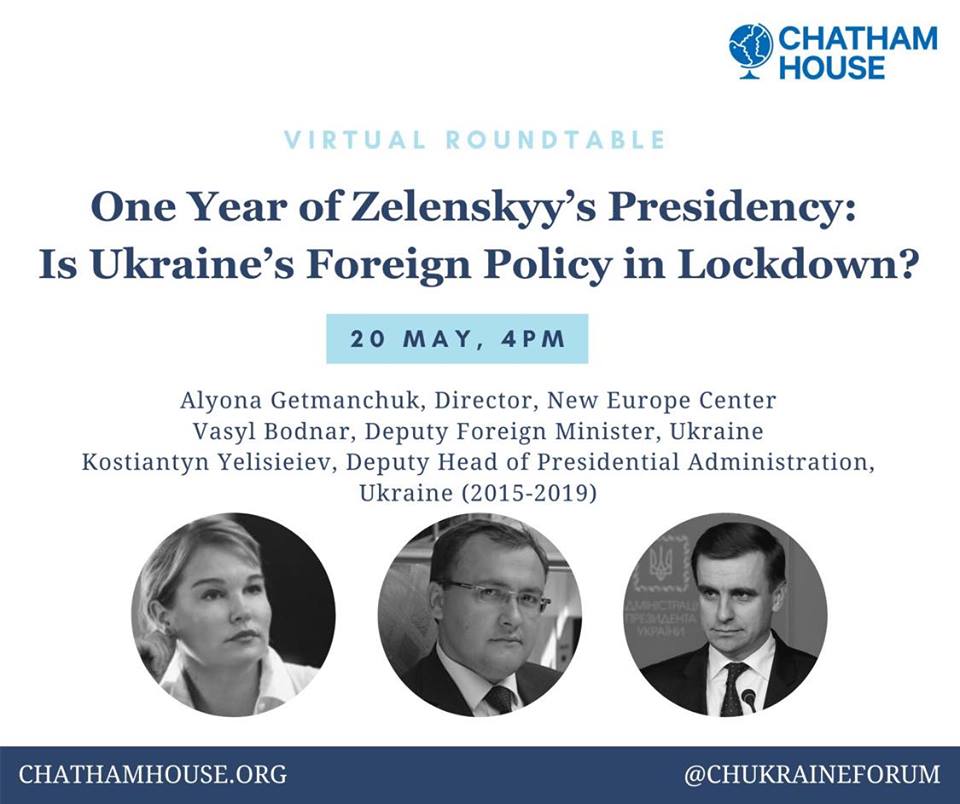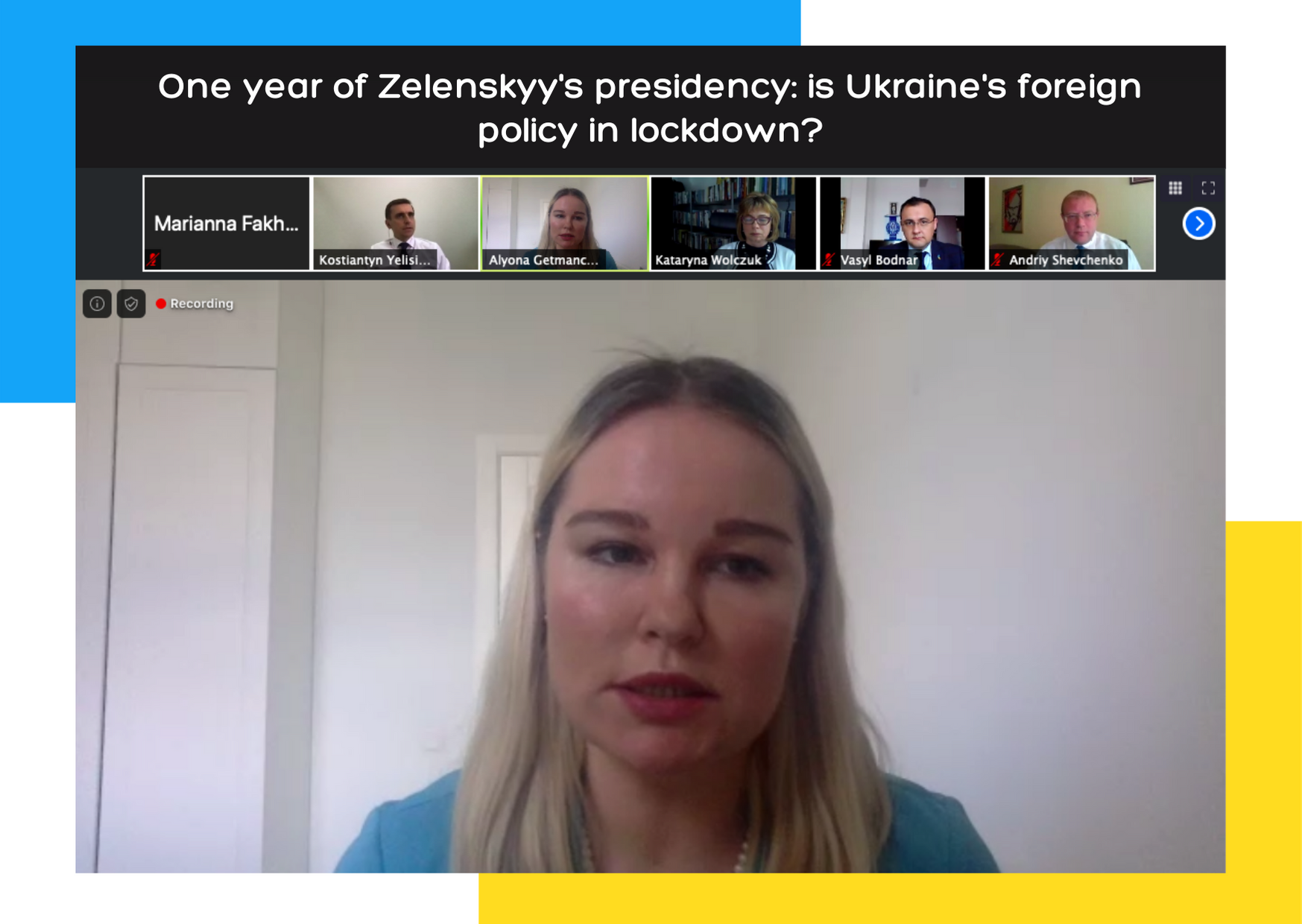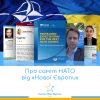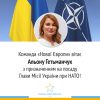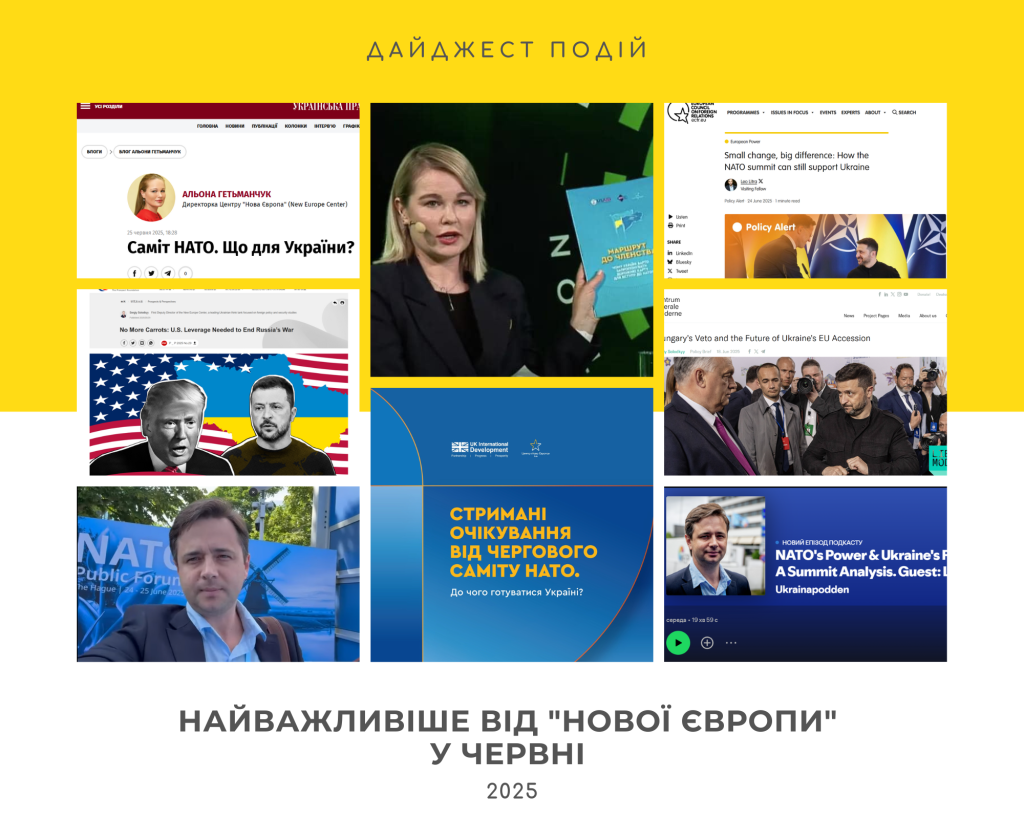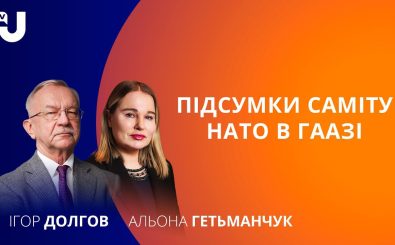On May, 20 Alyona Getmanchuk, Director of the New Europe Center, took part in the Chatham House online-event “One Year of Zelenskyy’s Presidency: Is Ukraine’s Foreign Policy in Lockdown?”. The record from the event is here:
Please find the key points by Alyona Getmanchuk here:
Foreign policy of president Zelenskyy:
- Ukraine’s foreign policy is conducted in presidential office with participation of the foreign minister. Yet, MFA is assisting, not leading.
- For Zelenskyy foreign policy is a tool to deliver on his major electoral promises: to end the war in Donbas, to slay corruption etc.
- We talk about Zelenskyy’s foreign policy even more than he himself does and thinks of it.
- The president is skeptical about diplomacy and diplomats, believes that it is more important to develop bilateral relations, not multilateral. He is also in favor of managing personal relations with other leaders.
- Most ideas that he promotes are welcome in Ukraine (Ukraine should be subject, not object of international politics; Ukraine cannot to be externally governed by any state; Ukraine has to be a full-fledged partner etc).
- Foreign policy is named as TOP-5 areas where Ukrainians consider Zelenskyy effective as a president. 30% of Ukrainians assess his foreign policy as very good or good. The question still remains if they are really so satisfied with Zelenskyy’s foreign policy or it just looks good compared with his results in fight against corruption, establishing rule of law and ending the war in Donbas.
- Ukrainian president made economic diplomacy the core of his foreign policy. Ukrainians are also in favor of the idea of so called “economization” of foreign policy.
- Over the year of Zelenskyy presidency we have been witnessing a competition between traditional and unconventional diplomacy in Ukraine. Despite the propensity of Zelenskyy and his chief of staff Yermak to challenge well established diplomatic rules, tools and protocols – which sometimes can be useful – it looks like carrier diplomats are regaining their positions. Especially on dimensions, which are not covered by Yermak himself. Since Yermak is very busy at the moment managing primarily Donbas peace talks there remains a lot of room for diplomats on other dimensions.
- The role of international partners have decreased, they are no longer perceived as drivers of reforms in Ukraine (only 12% of population still perceive them as such, while a couple of years ago this indicator amounted 25%).
- Zelenskyy has a potential to increase Ukraine’s soft power in post-soviet area, in Russian-speaking states.
Ukraine-US relations:
- The impeachment story was an unprecedented challenge and nobody was really ready to deal with it, including Ukrainian president. It looked like a diplomatic disaster for our relationship and we are still witnessing the consequences of this story.
- Ukraine became toxic in Washington. Ukraine’s dossier became a punishment not a reward. In the US they have not managed to find a person to replace Kurt Volker.
- Bilateral agenda is still being trapped by impeachment saga. The perception of the US among Ukrainian decision makers has deteriorated recently. The US stance as major reform driver has been also undermined by demands from the White House to conduct certain investigations.
- There is a feeling that no progress in Ukrainian-American relations is possible until the elections in the US.
- That’s a pity that this story happened because Zelenskyy could be the most appropriate partner for Trump. On many issues Zelenskyy’s approaches and positions resemble Trump’s positions more than those of any other world leader. I mean his skepticism towards traditional diplomacy, pragmatic and business dimension of foreign relations, preference of bilateral over multilateral track etc).
- Ukraine’s major asset in the USA is a bipartisan support. The role of the Congress is underestimated by Ukrainian parliament.
- My major concern is the story is not over. There is still a risk that Ukraine would be used in the US campaign.
War in Donbas
- Russian strategy towards Ukraine is not defined by Kozak or Surkov, it is defined by Putin.
- We are no more talking of the consultative council. In this situation the president proved to be quite vulnerable to the public and civil society reaction.
- Now we are talking about upgrading Ukraine’s delegation in Minsk. It demonstrates that Ukraine is serious about settling conflict in Donbas and there is a political will in Ukraine. The problem is not in Kyiv, the problem is in Kremlin.
- We have 2 options: either agree on Russian terms and use the strategy of quick wins. The result of such decision will be the real civil war in Ukraine. Or we can make Ukraine more resilient, reform and modernize it, and be prepared to another protracted conflict.



